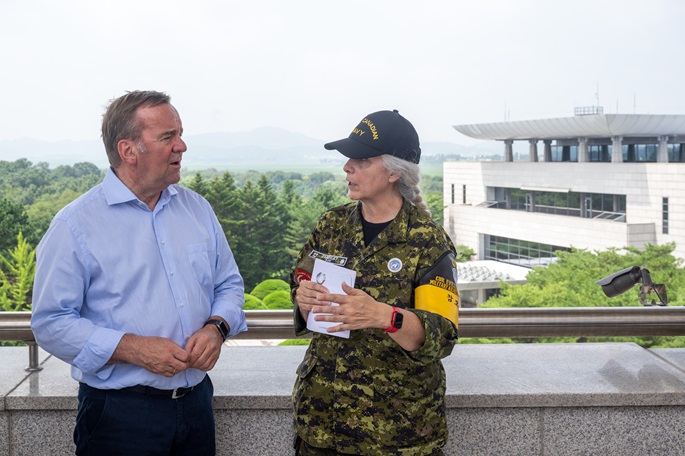Mandate would be needed to help protect Israel: German minister
Published : 03 Aug 2024, 21:39
German Defence Minister Boris Pistorius said involving the German Armed Forces, or Bundeswehr, in protecting Israel from a potential large-scale Iranian attack was not up for discussion.
Any military support through the provision of materials in any form would be decided upon "when the time comes," Pistorius said on the sidelines of a visit to Camp Bonifas at the border with North Korea. He is not involved in current discussions taking place in Berlin, he said.
Pistorius' comments came in response to a question about whether Germany, like the United States or other partners, might join an operation to protect Israel.
Any involvement of German soldiers, "which is completely inconceivable to [Pistorius] at the moment," would also require a mandate from the Bundestag, or parliament, he said. "Therefore, the question does not arise at all at the moment," he added.
Germany is among Israel's staunchest allies, and political leaders in Berlin have repeatedly stated that Israel has a right to self defence. Members of the German government have repeatedly affirmed in the past that the security of Israel is a German "matter of state."
The question comes amid growing fears of a conflagration in the Middle East, after a series of killings related to the war in Gaza which leaders have vowed to avenge.
Tensions in the region have risen following the killing of senior Hezbollah commander Fuad Shukr in an Israeli airstrike on Beirut and Hamas chief Ismail Haniyeh in the Iranian capital, Tehran.
Iran and Hamas hold Israel responsible for Haniyeh's death, but Israel has neither confirmed nor denied a role.
Iran and its allies, including Hezbollah, have vowed "harsh punishment" for Israel after Haniyeh's killing. Israel will not "hold back" should Iran launch an attack in retaliation, a top Israeli security official warned on Friday.
As fears grow, the US said it plans to move a fighter jet squadron to the Middle East to bolster its military presence in the region. The US Department of Defense is taking steps to "mitigate the possibility of regional escalation by Iran or Iran’s partners and proxies," an official said.
After nearly 10 months of fighting between the Palestinian Islamist group Hamas and Israel in the Gaza Strip, there are fears the Middle East now stands on the precipice of a regional war.
Such a wider war loomed after April 14, when Iran's Islamic Revolutionary Guards Corps (IRGC) fired hundreds of drones and missiles at Israel. Nearly all were intercepted with the help of the US and other allies.
That barrage came after Iran blamed Israel for the killing of two Iranian generals in a strike on the Iranian embassy compound in the Syrian capital Damascus.
Israel's response to the April 14 attack was limited in scale, with a military base in central Iran hit.


